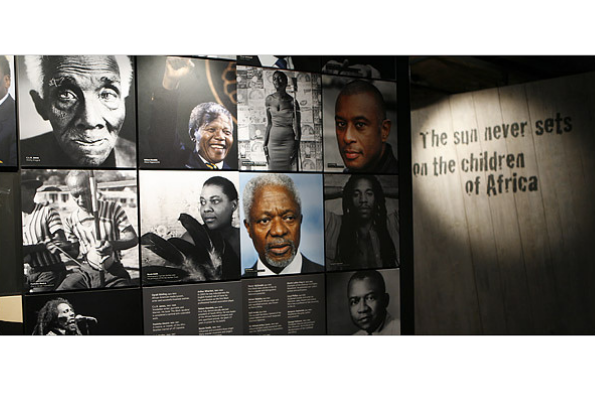
Reconnecting & Reframing: Through the Lens of an Activist Museum
Add this event to my calendar
Click on "Create a calendar file" and your browser will download a .ics file for this event.
Microsoft Outlook: Download the file, double-click it to open it in Outlook, then click on "Save & Close" to save it to your calendar. If that doesn't work go into Outlook, click on the File tab, then on Open & Export, then Open Calendar. Select your .ics file then click on "Save & Close".
Google Calendar: download the file, then go into your calendar. On the left where it says "Other calendars" click on the arrow icon and then click on Import calendar. Click on Browse and select the .ics file, then click on Import.
Apple Calendar: The file may open automatically with an option to save it to your calendar. If not, download the file, then you can either drag it to Calendar or import the file by going to File >Import > Import and choosing the .ics file.
Dr Richard Benjamin heads the International Slavery Museum at National Museums Liverpool, where he is responsible for the strategic development of the Museum, partnerships, research and collections. He is the Co-Director of the Centre for the Study of International Slavery and is currently on secondment as Visiting Professor in Slavery and Public Engagement in the School of Histories, Languages and Cultures at the University of Liverpool.
Richard will reflect upon, reappraise and refocus contested, missing and disregarded, histories and narratives through the lens of museums, libraries, galleries and archives. He will offer a personal perspective and utilize his time as Head of the International Slavery since 2007.
What role do museums, libraries, galleries and archives, play in realigning and reflecting society in a time of unrest and questioning? Can they enable social justice and enhance social cohesion? Can implementing diverse, inclusive and constructive narratives make society (and themselves) more conducive to positive change? Museums, libraries, galleries and archives, should be platforms for dialogue (and portals for action) on issues from the legacies of slavery to decolonial practices. They must strive to revolutionize their thinking and doing. Collection practices, displays and stories should reflect the here and now; and hasten ownership and power-sharing with their publics and communities.
Richard will discuss his journey from Edge Hill College, where he studied Community and Race Relations, to his work in Widening Participation at the University of Liverpool, and his experience as head of the International Slavery Museum.
This event is organised by the University of Liverpool's department of Libraries, Museums and Galleries and the Centre for the Study of International Slavery.
